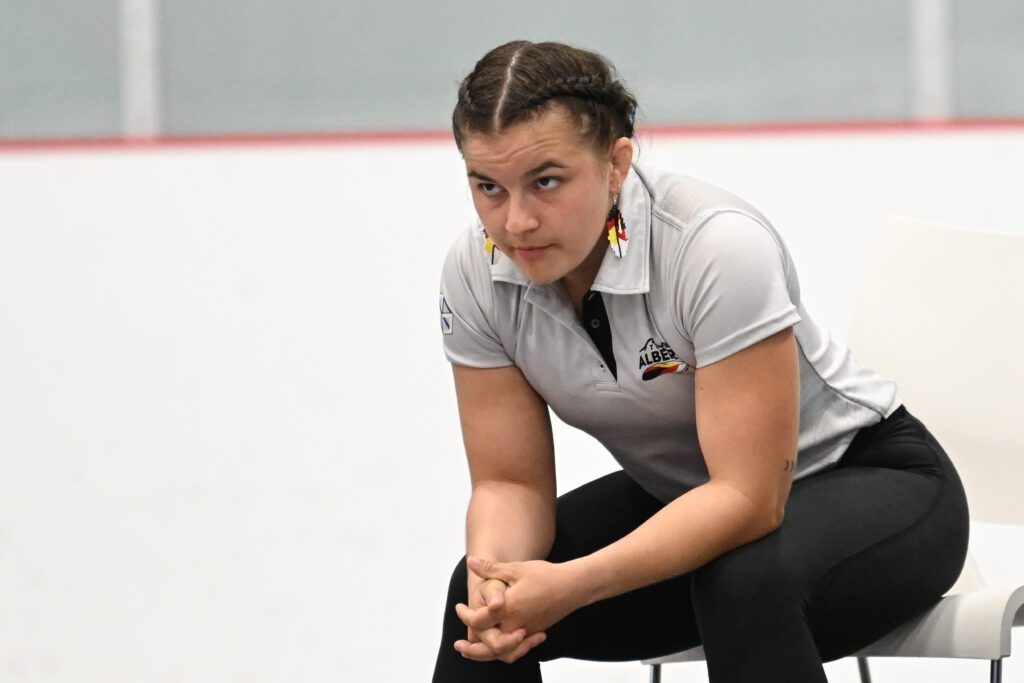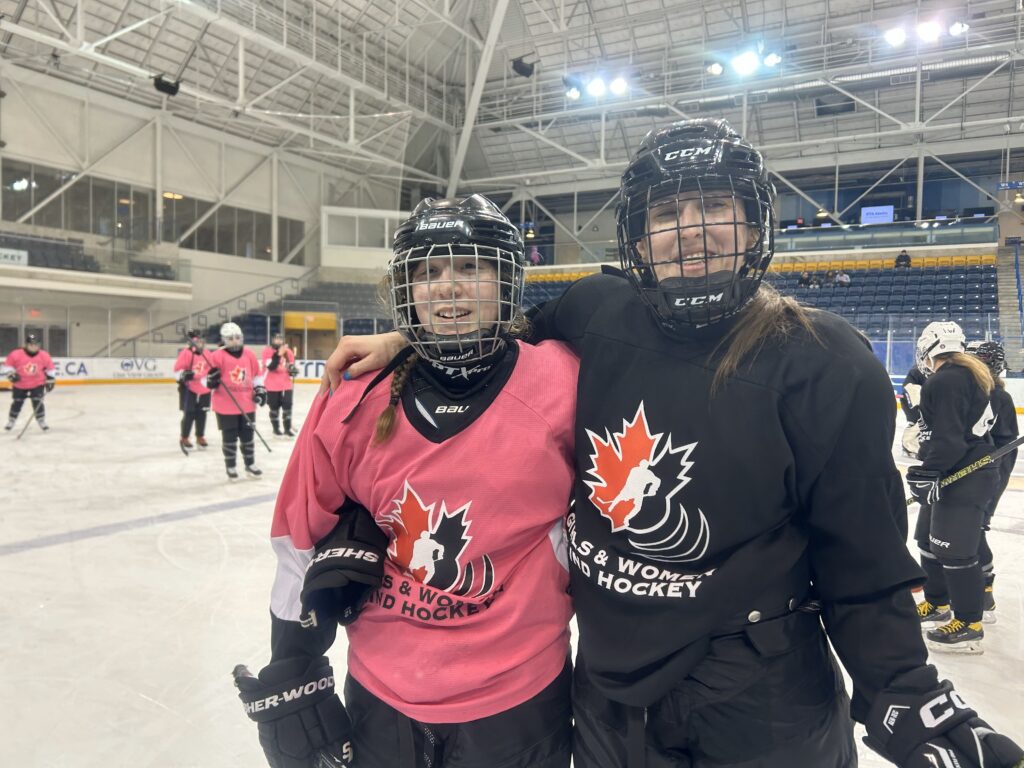Supporting Indigenous women’s place in lacrosse
This Canadian study found that racism, sexism, and colonial systems still limit how Indigenous women and girls take part in lacrosse. To move forward, participants emphasized the need for community-led, land-based programs that reflect Indigenous cultures and support their leadership in sport.
From Wrestler to Coach: Taylor McPherson’s Path of Purpose and Indigenous Pride

When Taylor McPherson first stepped onto a wrestling mat in Grade 7, she wasn’t dreaming of national titles, international tournaments, or coaching accolades. She was answering the call of her Grade 5 teacher, Mr. Watts, a man built like a wrestler, with WWE posters covering his classroom walls, who saw something in her. “He looked…
Breaking Ice: Connecting Indigenous Culture and Sport Through Blind Hockey

In partnership with Canadian Blind Hockey June is National Indigenous History Month, a time to reflect on the strength, resilience, and contributions of First Nations, Inuit, and Métis peoples. It’s also a time to acknowledge the gaps that still exist, particularly in areas like sport, where Indigenous youth, especially those with disabilities, continue to face…
Supporting Indigenous athletes
Many Indigenous athletes move away from home to pursue competitive sport opportunities. This can come with many challenges including culture shock and disconnection from home. Indigenous-engaged research shows that building a social support network that spans athletes’ home and host communities and maintaining a connection to culture are important ways to foster positive experiences for…
The relocation experiences of Indigenous athletes pursuing sport in Euro-Canadian contexts
Nature Games: Traditional Indigenous Games and Environmental Stewardship in Oceania
Gender, settler colonialism, and sport in Indigenous communities
Have you ever considered the dynamics between gender, settler colonialism, and sport within Indigenous communities? For instance, lacrosse, once a traditional Indigenous practice, was adopted by white settlers, altering its cultural significance. Gendered expectations within settler colonial institutions, like residential schools, have also enforced ideals that impact Indigenous women’s participation in sports like lacrosse. To…
Coach education through Indigenous perspectives
Prioritizing Indigenous voices is key for sports organizations designing coach education. Collaborative design can enhance cultural pride and support coach development by incorporating Indigenous culture and history. Using traditional methods like storytelling and mentoring, collaborative design aligns with the Truth and Reconciliation Commission’s Calls to Action, promoting Indigenous-led education and decolonizing coaching practices.